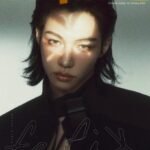I only really know about girl groups, but generally speaking, women/girl groups in K-Pop tend to be treated more unfairly than men/boy groups. Fantagio seems like a company without a lot of resources, and while neither Weki Meki or Hello Venus were particularly successful, Fantagio seemed to give them a lot of chances with what limited resources they had.
I’m sure once the partnership between Pledis and Fantagio fell through with Hello Venus, Fantagio had to buy the rights to keep the Hello Venus name. Now, I will say, this was at a time that a lot of companies were coercing their female artists to pursue sexy concepts. I am not defending that if this was the case. However, even though Hello Venus was not that successful, both before their “sexy” rebrand and after their rebrand, Fantagio seemed adamant about trying to give the girls a chance. I know Mysterious wasn’t exactly promoted as a proper final/disbandment comeback, but it almost seems that way. The company gave every song on the mini album a music video.
Then, with Weki Meki, while you could say the group’s handling was kinda botched from the beginning with Yoojung and Doyeon being front and center all the time… they also seemed to not give up on the group. They had quite a few comebacks, even giving them a light stick when they never really had the fandom for one, albeit pretty late in their career. They also had a proper disbandment single, which was a nice gesture to fans.
Anyway, I’m sure there are shitty things about Fantagio like all K-pop companies. It’s just a pretty stark contrast to its former partner Pledis, who’s been pretty consistently awful to its female acts, even with greater success than Fantagio.
submitted by /u/123ranchdressing
[link] [comments]












